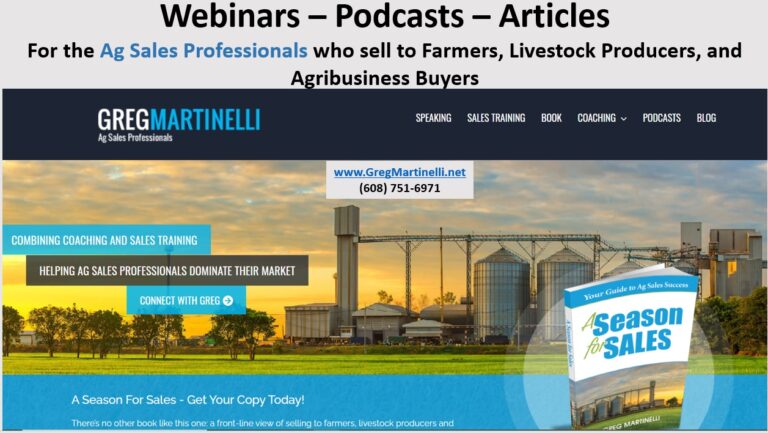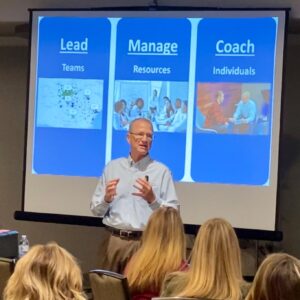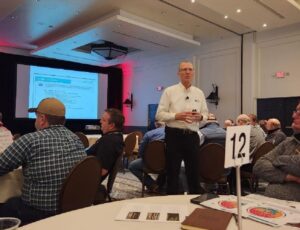You’re missing a perfect opportunity to Close more sales
The message is loud and clear.
Your prospect is not interested in buying from you. It might sound like, “Thanks for the information, but I think we’re going to stay where we’re at. We’ve been with them a long time and they haven’t done anything to upset us lately.”
Or your current customer is switching to a competitor, “Greg, we appreciate what you’ve done for us over the years, but we had some issues with your company, your manager, policies, etc. We’re going to give your competition a try. We’re still going to buy some products from you, but…..”
There is no denying it. Those words hurt. They sting. It takes all the energy you have to remain calm and think about how you should react. You know in your heart you worked hard for this customer. For that prospect, you did a lot of research and made them much smarter about the industry than before they met you.
At that pivotal moment, our natural tendency is to think it’s over and done. Fight that instinct with all your energy because it isn’t over. Program yourself to engage with several key questions. Before you do that, pre-empt the questions with a little qualifier.
For example, you might say, “I understand you want to stay with company ABC. I get it and I am not trying to change your mind but can I ask you a couple questions?”
This prelude to your next set of questions should feel like a relief to your prospect. They probably had a little anxiety in telling you “No”. With this question, you took the high-pressure selling off the table. Many times, this allows everyone to relax and just talk openly.
Now jump in with something like, “I really thought we had a good offer for you, but I’m curious, which part of their offer tipped your decision towards them? The reason I ask is that I like to understand where we are a good fit and where we aren’t.”
That last part where I explain the reason why I’m asking is another tension reliever. It’s telling the prospect that you want to know this for future situations and not necessarily right now in this situation.
In these short exchanges, I have had all sorts of results. There were several times when the prospect had a misunderstanding of what I had to offer. Maybe they didn’t understand what they were getting from my competitor. This resulted in them cancelling their order with the competition and giving me an order. However, most often, I was given a response that was very candid as to why I lost the sale. This information gave me a chance to keep the conversation flowing and think through a way to come back for future orders. Remember, if they considered switching once, they most likely will consider it again. The answers you get to why this prospect didn’t buy or this customer switched are golden lessons for future sales calls. You can apply this knowledge down the road when facing this same competitor on another farm.
Stay in your selling mode and keep asking questions: In the case of your current customer who decides to buy from your competitor, a key piece of information is the brand promise that competitor made to get the sale. Was it lower usage rates which produce higher yields? Was it higher horsepower to get through tough jobs faster? You want to revisit your customer after they have had a chance to use the competitor’s product. Did they live up to their brand promise? If so, how well? If not, how bad?
In my example, most people fed horses a 6# feeding rate. This was pretty common. Our product was no different. However, our competition sold on the idea you only had to feed 3-4 pounds per day of their product. This sounded good in the brochure, but didn’t work out at the barn so well. At that 3# rate, horses didn’t keep body condition, and had to be fed a more normal rate of 6# or supplemented. The cost savings just never seemed to work. If a prospect bought into this selling tactic, I made sure to go back in 60-90 days. In almost every case, the brand promise hadn’t been delivered on by my competition and the prospect was more open to discussion.
What about learning from Losers? We love the loser that just doesn’t give up. Every good movie has the hero caught in some form of a downward spiral. The situation looks grim for our hero, but yet she persists through it all and comes out on the other side, smarter, stronger and better prepared to face that situation in the future. In sales, that hero comes out with a sale. When I say we love the loser, I don’t mean they are somehow flawed in their personality. I mean they lost. They lost a sale. They lost their family, their job, their reputation. Somehow, they are down and out. Yet they found the courage to weather the storm and come back through it.
Watch any good quarterback like Aaron Rogers or Tom Brady. The minute they throw an interception or run a bad series of plays; they are on the sideline learning what went wrong. This is a golden opportunity for them to learn. The same can be applied to selling.
Go to any national sales meeting and you will hear success story after success story. That’s great, but what I really want to know is how they overcame the setbacks and the losses on their journey to that success. For that story, you typically have to go to the refreshment station later on and track them down.
Other losers you can learn from: those that didn’t have success at all. Yes, you can even learn from those in your company that tried and failed. However, you won’t see those stories on stage at the national sales meeting. No problem. Search them out anyway and meet them at the bar for a discussion. They just went through a lesson on how not to do something. Learn from it so you don’t repeat it.
In my example, we launched a premium dog food multiple times with little to no success. However, after each try, there was plenty to learn ad share with those making the next attempt.
In sales, we’re always told we have to take rejection and “Never take no for an answer.” Going forward, I want you to see these events from a different angle. View them as opportunities to learn and grow. Don’t block the off as a done deal and fail to dig a little deeper with good questions. Lastly, losses and losers are only complete losses if you don’t learn from them.
This leads me to ask you, what did you learn from the last customer that switched on you? Or the last prospect that decided to stay with the current supplier?
Now, go tell your peers about it so everyone can learn from it!
If this article helped you on your journey to being more effective in your selling, I ask you to share it with those who might also benefit from it.
Sign up for my weekly blog and podcast using the links in this email.
As a final request, take a look at the newest book on the market written specifically for you!
A Season for Sales: Your Guide to Ag Sales Success
The only book written specifically for the Ag Sales Professional, by an Ag Sales Professional!






